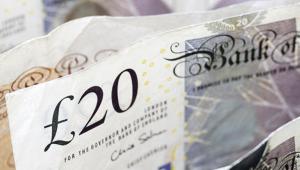By Judith Ugwumadu | 19 March 2014
Chancellor George Osborne used his Budget to unveil a host of ‘radical’ tax reforms to help pensioners and savers who have to been hit by low interest rates.
Saying the government was ‘backing a Britain that saves’, Osborne said the government would reduce a range of tax restrictions on defined contribution pension pots, putting pensioners in charge of their own finances and bringing the tax treatment of DC pensions ‘in line with the modern world’.
He said: ‘When it comes to tax charges, it will still be possible to take a quarter of your pension pot tax free on retirement, as today.
‘But instead of the punitive 55% tax that exists now if you try to take the rest, anything else you take out of your pension will simply be taxed at normal marginal tax rates – as with any other income. So not a 55% tax but a 20% tax for most pensioners.’
He described these changes as the ‘most far-reaching’ reform to the taxation of pensions since the regime was introduced in 1971.
Individual savings accounts are also to be made more generous, with the annual savings limit increased to £15,000 and the distinction between cash and stocks-and-shares ISAs abolished.
A new government-backed pensioner bond, paying market-leading rates, is also to be established. Issued by National Savings and Investments, open to everyone aged 65 or over, it will be available from January next year.
Osborne said the exact rates would be set in the autumn, but added: ‘Our assumption is 2.8% for a one year bond and 4% on a three year bond.
‘Up to £10bn of these bonds will be issued. A maximum of £10,000 can be saved in each bond. That’s at least a million pensioner bonds.’
The cap on Premium Bonds will also be lifted for the first time in a decade from £30,000 to £40,000 this June, and to £50,000 next year, he said, while the number of £1m winners will be doubled.
On income tax, Osborne announced that personal allowance would be raised to £10,500 next year, while the higher rate threshold is to rise for the first time in this Parliament from £41,450 to £41,865 next month and by a further 1% to £42,285 next year.
'And because I am also passing the full benefit of today’s personal allowance increase on to higher rate taxpayers – people earning 42,000, 43, 50, 60, all the way up to £100,000 will be paying less income tax because of this Budget,' he said.





















